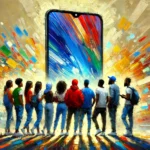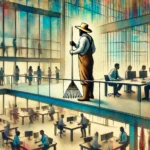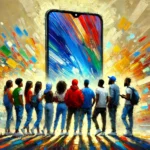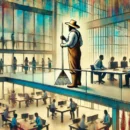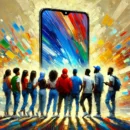Which way for the university degree?

It’s almost an article of faith: if you want your children to be something in this world, you have to do your level best to get them a university degree.
That’s how we’ve been brought up; that’s how we’ve all been pushed by our parents and teachers; those are the standards we’ve set for ourselves as aspiring individuals. Get the degree, preferably two, and then important doors will hopefully start to open in life.
(I can almost see you traditionalists squirming in your seats: wait, is he about to question the university degree, of all things, this Sunday? Surely not…)
What is a three- or four-year university or college degree? It is tempting to think it is a unit of education, period. That’s what it is marketed as: we teach you things; you come out educated at the other end. We hope.
But that’s not the only thing a degree is. It is actually a bundle, in which the education (real or imagined) is only one component. The other parts of the degree bundle are: a credential that employers require before considering you for employment; a coming-of-age adventure; and also a dating service!
We spend all those years and all that money for a variety of reasons, and being taught is only one of them. Most people, sadly, go only for the credentialing – the crucial piece of paper that employers want to see. But we also go for the escape from the parental home; for the multiplicity of opportunities to meet age-mates of the opposite sex; for the chance to raise one’s sporting prowess; for the first experience of making our own decisions and choices.
There’s a lot wrapped up in there. It’s worked for a long time. But it’s coming unstuck.
What’s the problem? The world has changed; the degree has not. This style of teaching was designed for an analogue era of factories and stable organizations. In a fluid time of rapid obsolescence and speedy innovation, it is not helpful to devote a one-off chunk of four years to your education. A more appropriate method would be to partake in tailored lifelong learning that evolves with you.
In many cases, the product is expensive, unimaginative and archaic. Many parents and students are thrown into years of debt to finance something that is increasingly unfit for purpose. Most of today’s university students are taught in exactly the same way I was schooled decades ago – yet the fees are astronomically higher in real terms, and the result unsatisfactory. In addition, the system thrives on scarcity and elitism, and leaves many young aspirants trapped in low-income prisons for life.
Change was bound to come – and the coronavirus is the accelerant. As millions of students have been pushed into online learning, a genuine conversation has begun on the merits and demerits of virtual classes. We are all discovering, very quickly, what can go online with ease – and what should stay in-person.
What will cause the unbundling of the college degree? The fall of credentialing. Once employers rise up to say the traditional degree, as taught today, does not meet their entry requirements, the facade will crumble. Google just fired some serious shots in this regard. Google Career Certificates can be done in 6 months; are entirely online; and cost just USD 300. Google will regard these certificates as the equivalent of a four-year degree. Right now just a handful of the most in-demand skill-sets (such as data analysis and user-experience design) will be taught – but the floodgates may just have been thrown open.
What happens next? The tech giants will make serious forays into education. Big employers may start to drop the requirement for traditional degrees, opening up the field to a plethora of fresh providers. More effective, more affordable, more relevant online courses may hit the education+credentials part of the bundle, hard.
Will the bundle then collapse? Not necessarily. An accelerated evolution is vital, though. The best of the current providers can protect the bundle – but only if they make some much-needed changes in quality, cost and relevance. Second-tier institutions, however, will really struggle without profound change in the offering.
So expect the big, branded universities to stay alive – but only if they use the corona accelerant to modernise their offerings and go for scale over scarcity, developing the online opportunity in partnership with tech firms. Also expect them to enhance the other parts of the proposition – the actual experience of in-person teaching, and of the campus community. If they do, this, they stay alive.
Which way then for the college degree? The great unbundling may have begun. It will be fascinating to watch.
(Sunday Nation, 4 October 2020)

Buy Sunny Bindra's book
UP & AHEAD
here »
Popular Posts
- What is a nation?June 30, 2024
- To be a great leader, think like a farmerJuly 21, 2024
- Don’t be surprised by surprisesJuly 14, 2024
- It takes mavericks to change the gameJuly 7, 2024
- Why we should all be activistsJune 16, 2024



